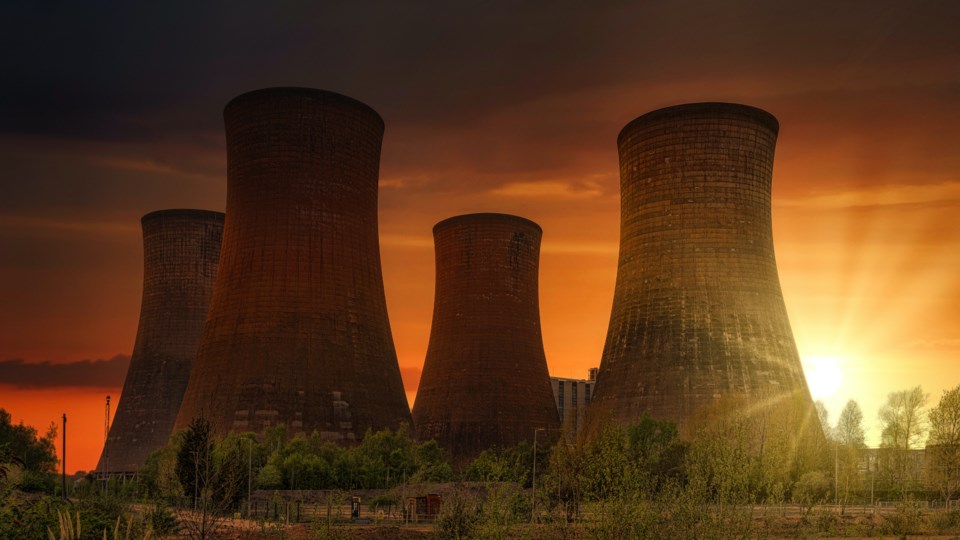OrilliaMatters welcomes letters to the editor at [email protected] or via the website. Please include your full name, daytime phone number and address (for verification of authorship, not publication). The following letter is in response to a letter about nuclear energy, published Jan. 16.
In a letter to the editor, Kelly Clune made many either blatantly false or misleading statements about nuclear energy versus so-called renewables (i.e., wind and solar).
Nuclear plants are the second least expensive form of power in Ontario. Water power is slightly cheaper, but almost all of Ontario’s commercially viable water generation capability is already developed.
Between November 2016 and October 2017, under the former Liberal government of Kathleen Wynne, Ontarians paid a rate paid to wind generators in Ontario of 14 cents per kilowatt hour.
Nuclear and hydro generators in Ontario, despite providing the majority of electricity output, received much lower rates compared to ‘renewable’ generators. Specifically, the rate paid to solar generators was more than seven times the rate paid to nuclear generators and more than eight times the rate paid to hydroelectric generators.
These results show there’s a substantial price difference between rates paid to wind, solar and biofuel generators and those paid to other generators. The high cost for renewable sources is even more extreme when you consider that in 2016, combined solar, wind and biomass generated less than seven per cent of electricity in Ontario.
Nuclear, like natural gas and hydroelectric, is a safe, reliable, concentrated form of energy that uses fewer finite natural resources (including land) and disturbs less land per kilowatt hour than diffuse energy sources like wind and solar. Nuclear produces cheaper, reliable electricity when demand is high due to weather extremes of cold and heat. Nuclear does not need natural gas to back it up during peak demand like wind and solar do.
Here in Alberta, the former NDP regime in its infinite stupidity decided to close all of our coal-fired power generation plants and replace them with wind turbine farms. This disastrous, ideologically driven idea eliminated hundreds of mortgage-paying unionized jobs, and quadrupled our monthly energy bills. Alberta used to be energy independent, but whenever we get one of our famous Prairie cold snaps when temperatures plummet to -30 degrees Celsius, our wind turbines stop producing electricity and we are forced to buy power from neighbouring Saskatchewan and Montana, which generate power from coal, by the way. The same thing happens when we hit plus-30 — demand increases and electricity production comes crashing to a halt.
Nuclear is also greener and more sustainable than wind and solar. Nuclear energy provides more than 10 per cent of the world’s electricity. That’s almost twice the electricity generated by solar, wind and tidal energy combined. In Canada, nuclear energy provides 16 per cent of the country’s electricity. Ontario produces nearly all of Canada’s nuclear energy.
A 2013 study by NASA found nuclear energy to be far less dangerous than other sources of electricity. In fact, the study estimates that nuclear energy causes the fewest deaths per unit of energy produced.
A University of Michigan study has concluded that it is impossible to mine enough copper to meet the push for an electric vehicle transition along with wind and solar. Not only can't it meet the copper needed for the vehicles themselves, but the power grid would be lacking as well. This is why the renewable claim is blatantly misleading.
Because wind and solar are not concentrated forms of energy, they require much more land to produce smaller amounts of energy. This is in addition to all the rare earth metals with open-pit mines and tailings ponds spewing heavy metal poison into rivers in developing countries just so Westerners can feel good about themselves. It is virtue signalling, plain and simple.
Canadians have suffered through nearly a decade of Justine Trudeau’s inflationary policies that have deliberately eroded living standards across our country. Few things governments can do hurt working Canadians more than the rising cost of energy born out of ideology rather than practical concerns.
Providing cheap, reliable energy should be a human right. That means tapping what is most readily available locally. In Alberta, it’s natural gas. In Saskatchewan, it’s coal. In Quebec, it is hydroelectric.
Ontario has a competitive advantage over other provinces with nuclear technology. And SMR technology looks promising.
I commend the Ontario premier for putting the practical interests of the people ahead of ideology. Ontarians are entitled to the cheapest and most reliable electricity possible.
Tim Szukalski
Edmonton



